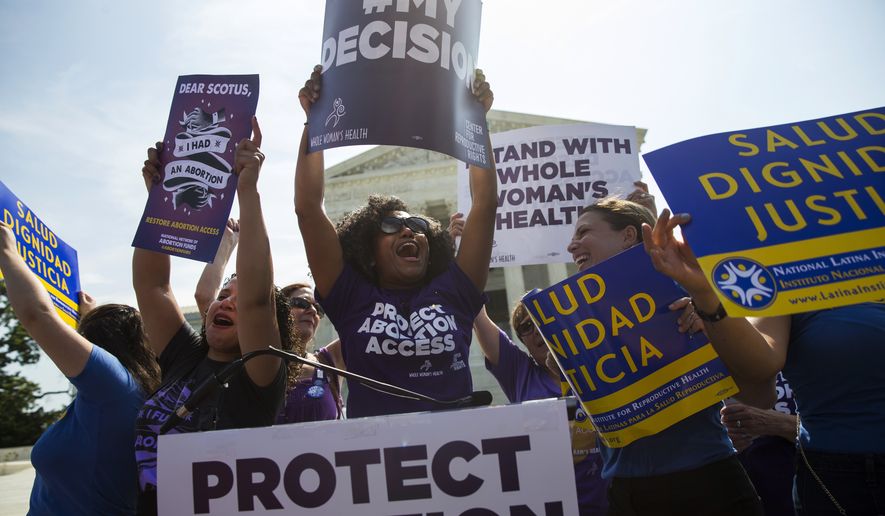The social issues that regularly roiled American politics for generations all but vanished from the presidential debate this year, although activists insist that voters still care deeply about causes such as abortion and gay rights.
Democrat nominee Hillary Clinton and Republican nominee Donald Trump occasionally gave a nod to social issues on the stump or on the debate stage, usually in the context of arguing the importance of Supreme Court picks the next president will make.
But they haven’t been pressing hot-button issues the way past candidate did in recent presidential campaigns — and voters have not demanded it, either.
Tim Malloy, assistant director of the Quinnipiac University poll, said the level of interest voters expressed in social issue this year was “almost none.”
“It hasn’t been part of the debate,” he said. “We do ask these questions, but it hasn’t been front and center in every poll we do of the presidential race.”
He said the debate and the pollsters have focused on other issues and the mudslinging that dominated the campaigns.
SEE ALSO: Justice Dept. to have fewer election monitors than in 2012
“It is immigration, the economy, terrorism, ISIS,” said Mr. Malloy. “So much of the conversation has been lost in the back and forth and the ugliness of this thing that in some ways it’s a miracle they got to any issues.”
Ballot questions have helped drive the debate in past elections. In 2004, referendums on same-sex marriage appeared on the ballot in 11 states, boosting turnout among conservative voters and helping President George W. Bush win re-election.
The Supreme Court decision last year affirming marriage equality settled that question. But ballot initiatives are largely absent from the equation in 2016.
David Lane, founder of America Renewal Project, said that many evangelical votes felt duped by the Bush campaign in 2004 and were finished with ballot initiatives.
“We’re not interested in that anymore. We’ve moved beyond that point,” he said.
He blamed the caustic political environment with preventing issues of faith from taking root.
“We spend the entire campaign talking about either a sex tape made 11 years ago or 33,000 missing emails,” said Mr. Lane. “What substantive issues have we talked about in this campaign? I’d say none.”
However, he credited Mr. Trump with saying more about the abortion issue than any other presidential candidate when he described the procedure in October during the third and final presidential debate.
“If you go with what Hillary is saying, in the ninth month, you can take the baby and rip the baby out of the womb of the mother just prior to the birth of the baby,” Mr. Trump at the debate in Las Vegas.
His comment caused a stir immediately after the debate, but the abortion issue quickly faded into the background.
Mr. Lane insisted that evangelical voters are motivated this year by social issues such as religious freedom and allowing transgender preference in publican bathrooms and school locker rooms.
“Those social issues as I’ve defined them are front and center to the evangelical Christian constituency,” he said.
While Mr. Trump often mentions religious freedom, he ultimately avoided the transgender bathroom issue by saying it was a decision best left to the states.
Questions about legalizing the use of marijuana to various degrees will appear on the ballot in nine states, including presidential battlegrounds of Arizona, Florida and Nevada. But marijuana voters aren’t expected to sway the results.
Marijuana just hasn’t been a contentious issue in the presidential race.
Mrs. Clinton and Mr. Trump both voided the issue of legalizing marijuana for medical or recreational use. They both pushed it off as an issue to be decided by the states.
University of Central Florida political science professor Aubrey Jewett, an expert on Florida politics, said he didn’t expect marijuana to impact the presidential race in the state.
“For some voters social issues are still important, but they do seem to have declined in importance for many voters. The economy and security seem to be the most important issues for many voters,” he said.
“There are many conservative and liberal voters who do still care about social issues — like transgender rights — but I think for many of these voters they are looking at Supreme Court nominees as the most important possible factor in their vote for president rather than a particular issue on the state ballot,” said Mr. Jewett.
The social issue that received the most attention in the presidential campaign was gun control, with both candidates making it part of their agenda and activists on both sides working intently to keep the issue in front of voters.
Measure the would tighten firearm laws are on the ballot in four states: California, Maine, Nevada and Washington.
“Guns has been center stage this election — from being a major wedge issue in the Democratic primaries to being a 30-minute block during the DNC to being a recurrent issue discussed during the presidential debates,” said Everytown for Gun Safety spokeswoman Erika Soto Lamb.
“On the other side, the NRA leadership endorsed Trump earlier than they typically do and how they proceeded to break their own spending records to support him,” she said. “Guns have gone from the third rail of politics to an issue that candidates — from both major parties — are running on.”
• S.A. Miller can be reached at smiller@washingtontimes.com.




Please read our comment policy before commenting.